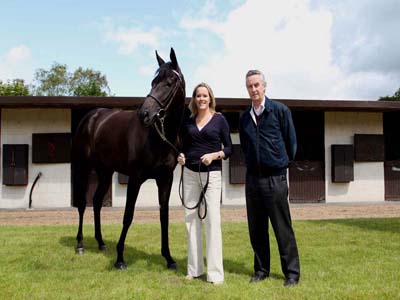The Irish Government has announced details of a new Intellectual Property Protocol to make it easier for businesses to engage with scientific researchers and commercialise publicly-funded research, which currently receives funding of more than €800m each year.
At NovaUCD this morning, the Minister for Jobs, Enterprise and Innovation Richard Bruton TD, and the Minister for Research and Innovation Sean Sherlock,TD, announced the new IP structures.
The ultimate aim is to encourage more businesses to commercialise R&D by ensuring that they can access the results of State-funded research.
Technology transfer
Firstly, a new Central Technology Transfer Office will be set up so that industry can tap into research opportunities and IP that has been generated across the entire publicly funded research system.
The new IP Protocol is also standardising IP terms to make it easier to set up agreements between businesses and researchers.
Apparently it will also implement “generous commercial terms” to encourage businesses to engage with researchers, and to use the results of research to develop new products and services. As well as this the new Protocol is aiming to improve the management of IP.
Speaking at NovaUCD this morning, Minister Bruton said that the new protocol marked a major evolution of the relationship between industry and publicly funded research in Ireland.
“It will create a world-class new system that will make it easier and faster for entrepreneurs and companies to negotiate a commercial arrangement with researchers,” he claimed.
Bruton also touched on how the protocol would encourage more multinationals, in addition to indigenous companies, to use the IP generated by Irish R&D to create products and services.
Minister Sherlock said that the standardised terms in the new protocol will support both industry parties and research-performing organisations in making their commercial negotiations faster, more consistent and more transparent.
“The policies set out in the IP Protocol will also support the building of relationships with industry that will support a sustainable flow of commercialisation activities and build networks of long-term knowledge sharing,” he said.
Dr Emmeline Hill of the UCD spin-out Equinome was also at this morning’s event. The company has spawned out of the commercialisation of State-funded research. In 2004 Equinome received a Science Foundation Ireland award to support a five-year programme of work at UCD to investigate the genomics of performance in thoroughbred horses.

Equinome co-founders Dr Emmeline Hill and Irish racehorse trainer and breeder Jim Bolger, pictured with racehorse Banimpire
Equinome is currently based at NovaUCD and Irish horse trainer and breeder Jim Bolger is a co-founder. The company’s Equinome Speed Gene Test is now being used by certain circles in the global bloodstock and racing industry to identify the optimum racing distance for individual thoroughbred horses.
As well as in Ireland, Equinome has now secured clients around the world such as in the US, Australia, New Zealand, the UK, France, Russia and Singapore.
Earlier this year, Hill was the senior author of a study that involved scientists from University College Dublin, University of Cambridge and Equinome. The scientists said they had traced the origin of the ‘speed gene’ in thoroughbred racehorses back to a single British mare that lived in the UK around 300 years ago.